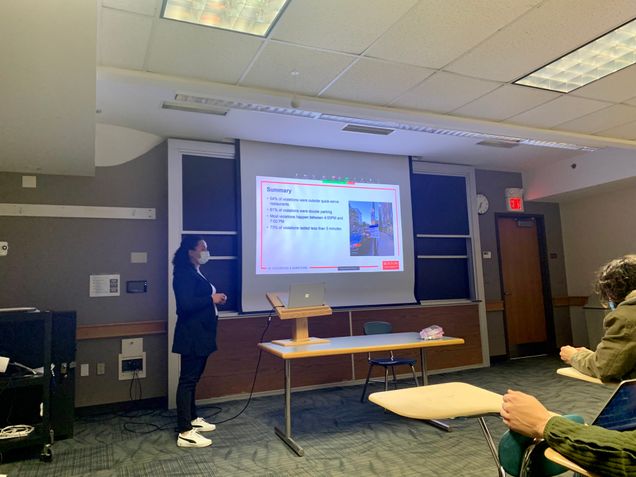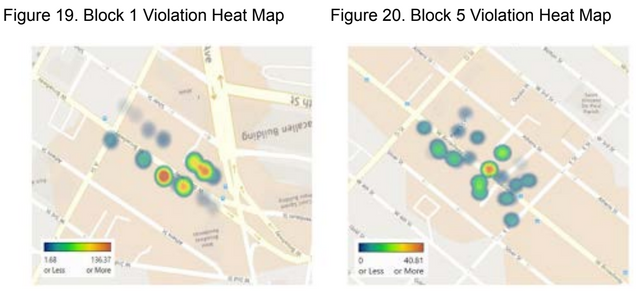Understanding Curb Usage in Boston’s West Broadway Corridor Through Observational Research
Through the MetroBridge Program, graduate students at Boston University researched curb space use in the West Broadway corridor in South Boston to better understand unmet demand. In fall 2021, Yesim Sungu-Eryilmaz, Assistant Professor and Interim Director of City Planning and Urban Affairs, taught a course on Urban Research Methods in the Metropolitan College and guided students through the process of collecting data and recommending strategies for the City of Boston to understand the gap between the current demand for curb space and existing regulations.
The MetroBridge Program is the Initiative on Cities’ experiential learning program, which helps connect BU students and faculty to local governments in a series of real-world projects. These projects provide students the unique opportunity to work on impactful projects with neighboring cities, while also offering partner organizations valuable insights for addressing urban challenges.
“The curb project was perfect for this class because the overriding goal of this class was for students to engage in the process of scientific research and to learn to link substantive research and policy questions to appropriate data and research methods,” explained Sungu-Eryilmaz. “Students designed the whole research project from start to finish.”

The course was primarily for graduate students in the Master of City Planning and Urban Affairs programs. Students engaged with the City of Boston’s Office of New Urban Mechanics, and they were tasked with assessing the competing needs of the curb with a high number of deliveries and other drop-offs. This issue stems from debate on whether there is a greater need for residential parking or more delivery spaces.
“For the purpose of this project, three groups were formed. One group conducted a literature review to understand what other cities have done. The second group designed the methodology and the data collection instrument. And the third group analyzed the data,” said Sungu-Eryilmaz.
The team that developed the study’s methodology received the $500 MetroBridge Student Prize for their outstanding efforts. This prize is awarded each semester to an individual or group whose final project exemplifies a high quality of research and interpretation, thoroughness of final deliverables, impact on community, and contribution by all team members. The winning team included Zachary Jones, Harry Falconer, Nicole Sancilio, Taylor Zorski, Brandon Lehman, and Michael Sinclair.
The students collected data through direct observation of curb violations in the West Broadway corridor, entered their data into a custom ArcGIS form, and interpreted the results to make strategic recommendations for the City. The groups synthesized their findings into a final report, available here. They created heat maps to show where the most violations occurred, and one pattern they found was that multiple violations occurred outside of quick service restaurants, as shown in the figures below.

“The students enjoyed the experience of observing and recording their observations. They were amazed at how many curb violations were happening and felt empowered to be able to provide supporting data and numbers to highlight the curb issues on West Broadway,” said Sungu-Eryilmaz.
Learn more about other fall 2021 MetroBridge projects here, and find the spring 2022 course list here! To stay up-to-date, follow us on Twitter, Instagram, or Facebook, or subscribe to our newsletter.